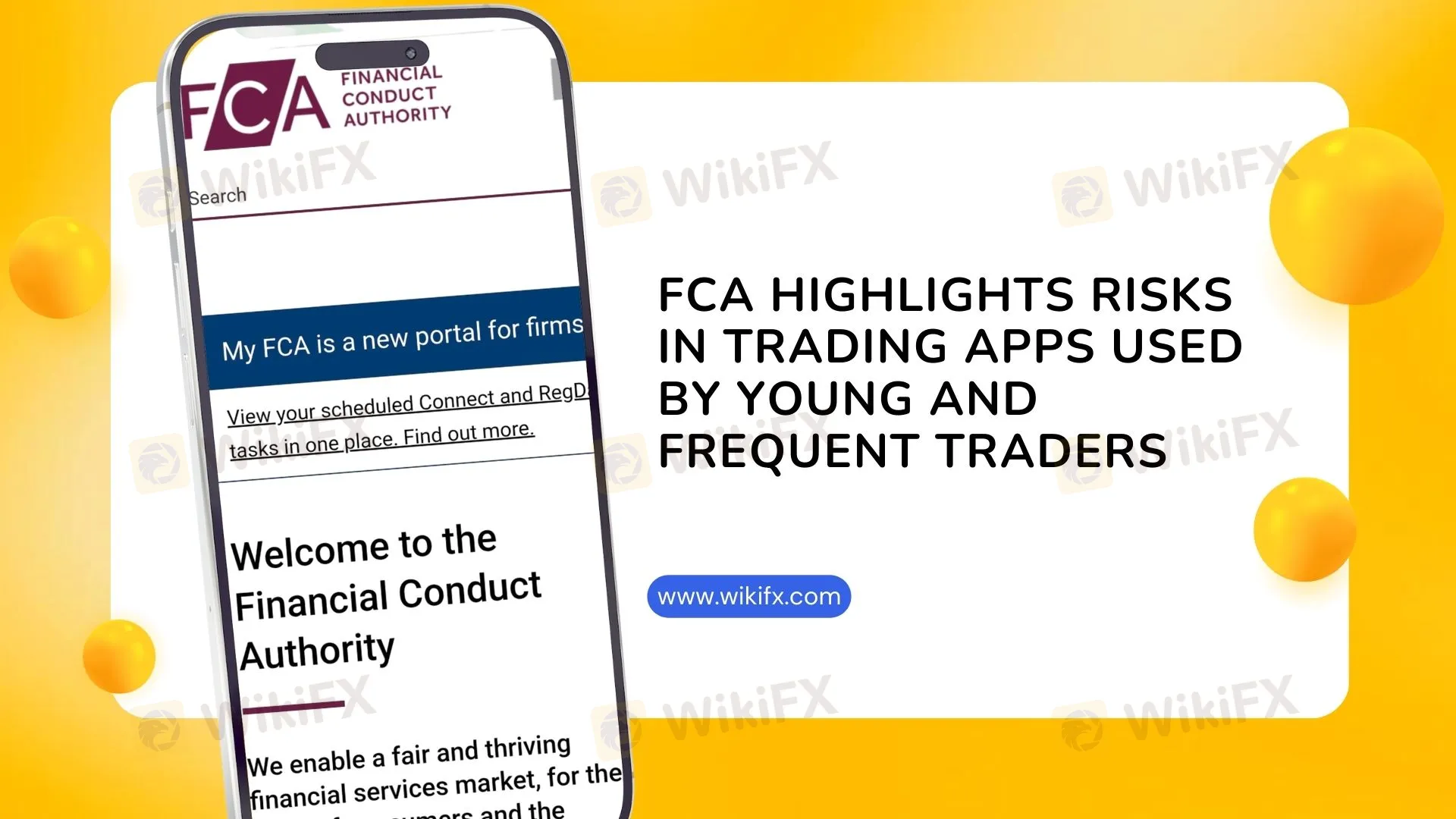简体中文
繁體中文
English
Pусский
日本語
ภาษาไทย
Tiếng Việt
Bahasa Indonesia
Español
हिन्दी
Filippiiniläinen
Français
Deutsch
Português
Türkçe
한국어
العربية
FCA Highlights Risks in Trading Apps Used by Young and Frequent Traders
Abstract:A new FCA report finds that trading app features may drive excessive trading among younger users, with some platforms lacking adequate checks for high-risk products.

The UK Financial Conduct Authority (FCA) has released a multi-firm review and behavioral research highlighting key risks associated with trading apps, particularly those used by young and frequent traders.
Key Findings on Business Models and Engagement Practices
The review covered 12 trading app providers, revealing diverse business models. Some acted as introducers, directing users to affiliated platforms. Revenue streams included commission, subscription fees, and interest from idle balances. FCA noted that some firms lacked sufficient oversight of pricing fairness and investor value.
Firms employed digital engagement practices (DEPs), such as push notifications and gamified incentives. While all firms showed some awareness of the risks, FCA cautioned that some app designs may unintentionally drive higher trade frequency and risk exposure.
Target Market and Product Suitability Concerns
The FCA observed that several apps did not adequately define their target customer profiles. In some cases, complex or high-risk products were accessible to users without sufficient knowledge or experience. Appropriateness testing was found to be weak in certain apps, allowing unqualified investors to access unsuitable offerings.
Behavioral Research Shows Demographic Impact
FCA's behavioral study indicated that trading apps with more gamified elements attracted users with lower income and higher trade frequency. These users also tended to have worse investment outcomes, raising questions about how app design may be linked to real-world financial results.
Conclusion
The FCA has not mandated specific changes but encourages firms to examine their app designs, especially concerning user engagement features, pricing transparency, and risk control procedures. With trading apps rapidly growing in popularity, especially among younger demographics, proper oversight remains critical to ensuring responsible investment access.
Disclaimer:
The views in this article only represent the author's personal views, and do not constitute investment advice on this platform. This platform does not guarantee the accuracy, completeness and timeliness of the information in the article, and will not be liable for any loss caused by the use of or reliance on the information in the article.
Read more

The Deepening Roots of Forex Scams in India
Check out how forex scams in India have expanded beyond banks and unregistered brokers to include the informal gang racket duping investors every day.

BaFin Flags Surge in Unauthorized Financial Platforms and Identity Fraud Cases
Scammers are using cloned websites and fake licenses to trick investors. BaFin has flagged seven such entities this week. Before investing, always cross-check broker credentials on WikiFX.

FCA Issues New Warnings Against Clone and Unlicensed Investment Firms
The UK FCA has issued fresh warnings against multiple clone and unlicensed investment firms impersonating authorized entities to deceive investors. Protect your funds—always verify before investing.

$1.1 Million Default Judgement Passed Against Keith Crews in Stemy Coin Fraud Scheme
A Georgia-based federal court has passed a $1.1 million default judgment against Keith Crews on June 3, 2025, in the Stemy Coin Fraud Scheme. Read on to know more.
WikiFX Broker
Latest News
Advantages of Using EA VPS for Trading - Detailed Guide
$1.1 Million Default Judgement Passed Against Keith Crews in Stemy Coin Fraud Scheme
MetaQuotes Rolls Out MT5 Build 5120 with Enhanced Features and Stability Fixes
Indian "Finfluencer" Asmita Patel Banned: SEBI Slaps Charges on Her Company, AGSTPL
HDFC Bank's Green Push: Empowering 1,000 Villages with Solar Energy
Safe-Haven Surge: Gold Shines Amid Market Turmoil
Why Your Stop Loss Keeps Getting Hit & How to Fix It
How Money Moves the World | Why Finance Matters for Everyone
IG Japan Issues Trading Alert as Israel‑Iran Tensions Escalate
Investor Alert: SEBI Introduces New UPI Safety Net Against Scam Brokers
Currency Calculator


